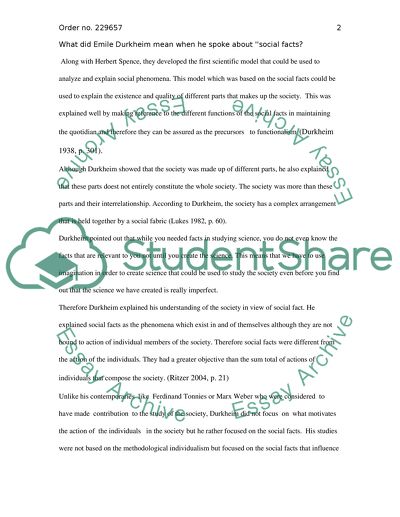Emile Durkheim Theories Essay Example | Topics and Well Written Essays - 1000 words. Retrieved from https://studentshare.org/philosophy/1520305-emile-durkheim-theories
Emile Durkheim Theories Essay Example | Topics and Well Written Essays - 1000 Words. https://studentshare.org/philosophy/1520305-emile-durkheim-theories.


